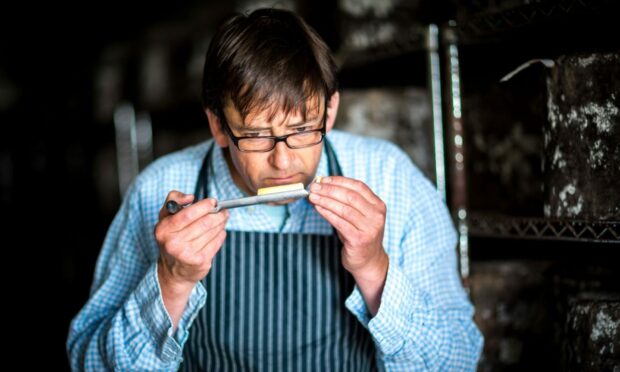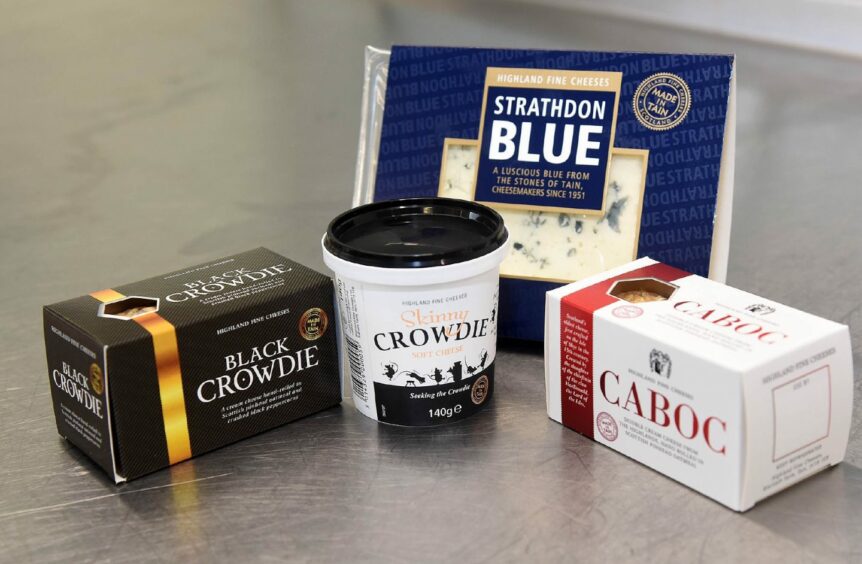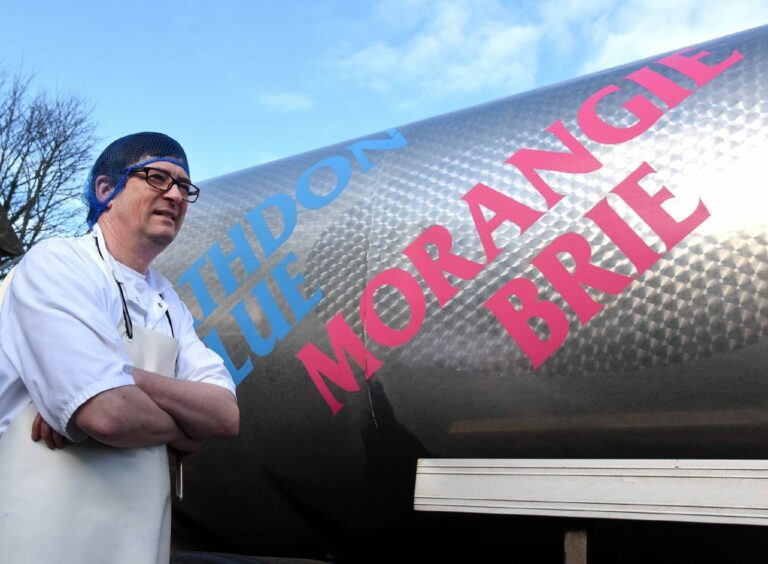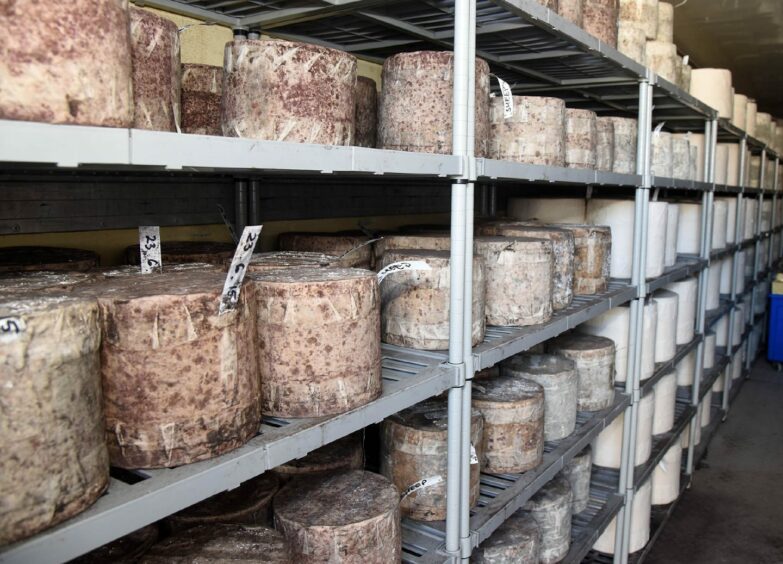Highland Fine Cheeses (HFC) has toasted Brexit, more people shopping locally and other consumer trends for boosting sales by 33% in the past year.
The artisan cheese-maker, based in Tain, Ross-shire, said it was on track for record turnover of £2 million during the 12 months to May 2022, up from £1.5m the year before.
HFC said it had carved itself a bigger slice of the market in a year of “extraordinary growth”, driven by factors including expansion into wider UK markets.
There is a certain grumpiness from our European friends and imports are not flowing as freely as they once did.”
Rory Stone, owner, Highland Fine Cheeses.
Brexit has reduced the availability of continental produce, encouraging more shoppers to buy UK cheese, the multiple award-winning firm said.
People are thinking more about where food comes from and the conditions in which it is produced, it added
And a consumer trend – “catalysed by the Covid years” – to shop local and support food producers closer to home has pushed demand to “unprecedented levels”, HFC said.
The award-winning company is now also supplying chains such as Waitrose and Marks and Spencer in England
HFC – whose range includes traditional crowdie, black crowdie and caboc, as well as its Morangie and Highland Brie, Strathdon Blue, Blue Murder, Fat Cow and Minger – won a raft of gongs at the last Royal Highland Show.
The company’s cheese, particularly its blue varieties, sell well over the festive season and HFC is already working on building stock for Christmas.
Recruitment is also under way to add four new employees, including a dairy manager, to the current 13-strong team.
The Brexit effect
Owner Rory Stone, whose parents established the business in the 1950s, said: “Brexit has, without a doubt, had a big effect.
“There is a certain grumpiness from our European friends and imports are not flowing as freely as they once did.
“This means supermarket buyers and major wholesalers are having to look closer to home to source products to fill the nation’s shelves. There is definitely less choice in the cheese aisles.”
Mr Stone added: “The last two years have also perceptibly changed people’s thinking about where food comes from, and the conditions in which it is produced. There has been a distinct re-shoring of shopping baskets.”
He said sales may also have been boosted by the time which became available during lockdowns to devote to processes and quality control. “We are always on the hamster wheel of improvement,” he added.
Research by professional services giant Deloitte found 59% of UK consumers bought from local shops and services more regularly during lockdowns.
Another study showed just 32% of Generation Z – those born between the mid to late 1990s and 2010s – believe food shopping will continue to take place in traditional supermarkets.
According to Mr Stone, domestic cheese-makers have also benefited from significant upticks in the prices sought by continental rivals, as they, too, battle the global problems of rising costs of raw materials, energy and labour.




Conversation